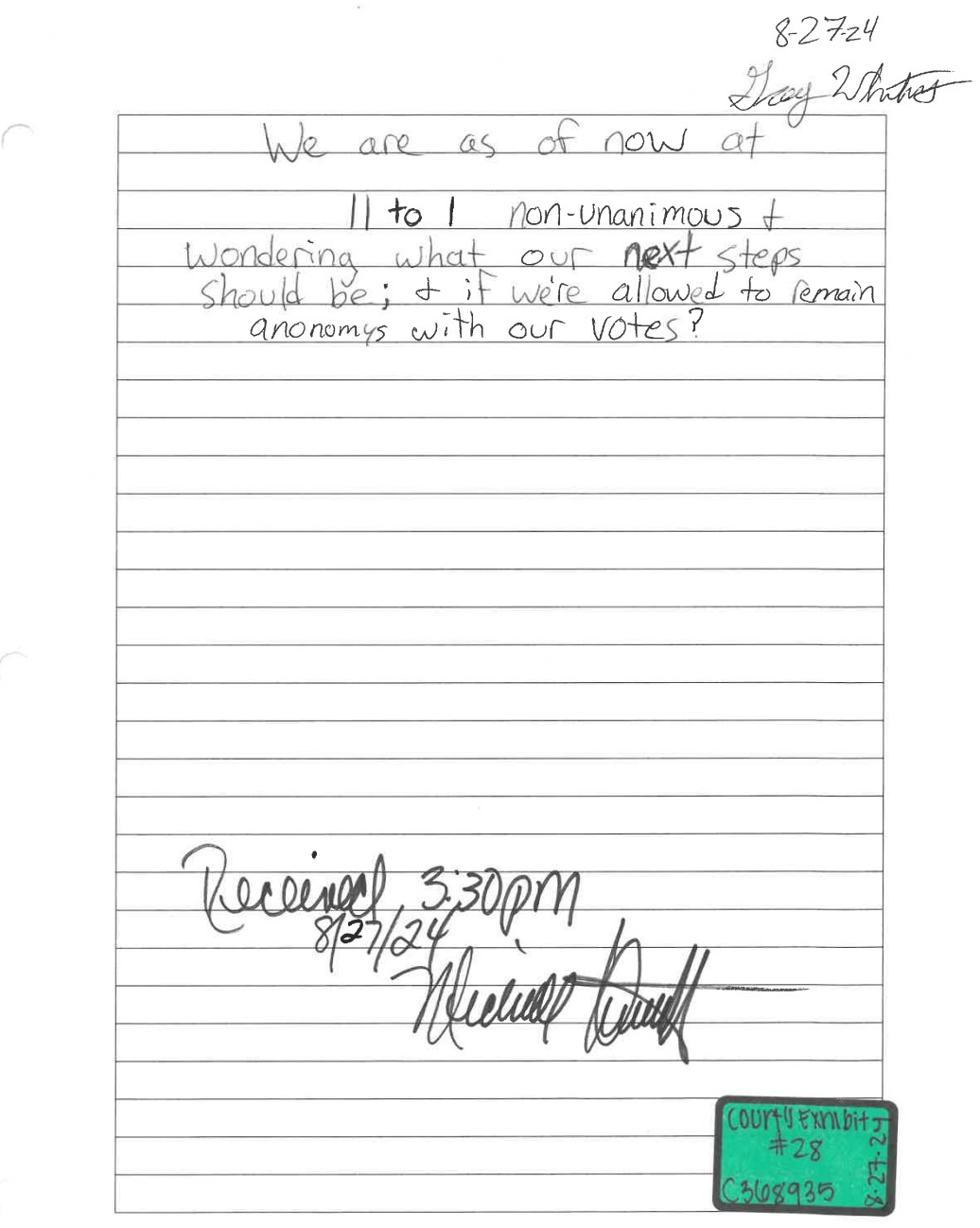Robert Telles trial judge defends handling of juror note about ‘hung jury’
The judge who oversaw Robert Telles’ murder trial held a hearing Tuesday and defended her handling of a note from the jury that stated jurors were divided.
A former attorney for the convicted murderer has said he would have asked for a mistrial had he known about the “hung jury” note when it was sent to the judge.
Telles, a former Clark County public administrator, fatally stabbed Las Vegas Review-Journal investigative reporter Jeff German in September 2022 as retaliation for German’s reporting on his misconduct as a public official. He is now serving a sentence of 28 years to life in prison. Jurors found him guilty of first-degree murder in late August.
District Judge Michelle Leavitt, who presided over the trial, received multiple juror notes on Aug. 27, the day before the jury came to a verdict.
A juror reported having a 5 p.m. class in one note. Another note from jurors said, “We are as of now at 11 to 1 non-unanimous + wondering what our next steps should be; + if we’re allowed to remain anonomys (sic) with our votes?”
Leavitt wrote on the note about the divided jury that she received it at 3:30 p.m. She said at the Tuesday hearing that she excused the jury to go home. “I had to let the jury go because that one juror had that issue,” the judge said.
The next morning, jurors resumed deliberating while Leavitt heard other cases, she said.
“Before I could even tell the parties to come back to look at these notes, we got a verdict,” Leavitt said. “So then the attorneys were given the notes before we took the verdict. The court made a record: ‘Does anybody want to say anything, object?’…Both sides said no.”
The hung jury note became an issue after it was mentioned in media reports, including a Review-Journal account of deliberations.
After a failed attempt this fall to obtain a hearing on juror statements, Deputy Public Defender Kelsey Bernstein filed a motion seeking to make an affidavit by previous defense attorney Robert Draskovich part of the case record.
In the affidavit, Draskovich wrote that he had been unaware of the “hung jury” note but would have asked for a mistrial had he known of it at the time it was sent to Leavitt.
Prosecutors opposed adding Draskovich’s affidavit to the record and argued Leavitt disclosed juror notes before the verdict.
“It sounds like he’s creating a hypothetical that didn’t happen,” said Leavitt, before denying the motion.
“What is the limiting factor here?” Assistant District Attorney Pamela Weckerly asked. “It seems as though the rule, based on what is proposed by the defense, is that any time there is an argument that counsel wishes they had made at trial level, they can just insert their interpretation of what was going on at trial and then make an argument that was never put into the record.”
Bernstein suggested Draskovich’s affidavit could be used to make an ineffective assistance of counsel claim on appeal.
“The affidavit is purely counsel’s state of mind as it existed at the time,” she said. “And your honor’s done plenty of ineffective assistance petitions. You know that there are several things that are just inherently not contained in the record and trial counsel’s decisions, his state of mind, what he knew at the time, is among those things.”
Leavitt questioned how Draskovich could have known about the note when she sent the jury home.
Draskovich said defense attorneys did the best they could with a difficult set of facts and evidence.
“We gave him a zealous defense,” he said. The jury asked questions, he added, and showed they took into account the arguments raised by the defense.
Contact Noble Brigham at nbrigham@reviewjournal.com. Follow @BrighamNoble on X.





















